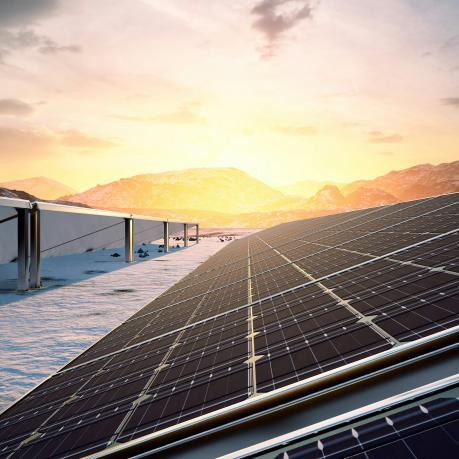
From ambition to implementation: delivering the energy transition and industrial transformation in 2026
Insight by Sandra Ghosh, Susanne Lein
Insight by Raffaele Piria

Even under optimistic assumptions, Europe is likely to need significant amounts of imported energy, mostly hydrogen and derivatives, like synthetic fuels and ammonia, to become climate neutral. So now is the time to start thinking about how to secure the EU’s future import needs.
In the middle of World War II, as its outcome looked very uncertain, three political prisoners banned by Mussolini’s regime on the island of Ventotene wrote and smuggled out the visionary draft manifesto “For a Free and United Europe”. Some of their contemporaries who read that document might have found it untimely, as it did not focus on the more immediate challenge of fighting back Germany’s and Italy’s fascist regimes that were occupying large parts of Europe. Eventually, though, the manifesto became a cornerstone of the EU integration process. Similarly, without neglecting the importance of securing our energy supply for next winter, we must also look forward.
For the time being, the climate crisis has been pushed out of the headlines, but it is not slowing down and it will keep humankind busy long after Putin’s regime is gone. In the coming weeks and months, there might be calls to deprioritise climate policy in these times of crisis. However, Europe’s long-term energy security very much depends on the success of its energy transition. This is because ambitious climate policies go hand in hand with a massive reduction of the EU’s reliance on imported fossil fuels.
Nevertheless, even under optimistic assumptions, a climate neutral EU is still likely to rely on significant amounts of energy imports, mostly hydrogen and its derivatives such as synthetic fuels and ammonia. The recent study “Securing hydrogen imports for Germany – Import needs, risks and strategies on the way to climate neutrality” that I co-authored with experts from the Potsdam Institute for Climate Impact Research, Fraunhofer IEG and with a fellow expert at adelphi examines how the changing risk landscape can best be navigated to ensure security of supply. While the study focuses on Germany, several of its findings apply to the EU as a whole.
There are two bits of good news. First, assuming rapid progress towards our climate neutrality goals, the EU’s vulnerability to fossil fuel imports will very rapidly decrease. Certainly, more and more industrial processes and, crucially, backup power generation will gradually become reliant on (partly imported) hydrogen. This does open up links related to import risks. But the second good news is that these risks will not only be smaller in scope than today’s situation, they also will be qualitatively lower: among other things because the global green hydrogen (e.g. mainly wind and solar) resources are more evenly distributed than the fossil fuel resources.

Nevertheless, hydrogen import risks will arise and will be partly different from today’s risks. We need to prepare for them. A forward-looking strategy to manage hydrogen import risks is built on four pillars:

Finally, while building up the value chain and supply routes for future large-scale green hydrogen imports, importing countries need to find a balance between international cooperation and competition for the best green hydrogen resources. Most of the above-mentioned measures are likely to create positive synergies for all hydrogen importing countries.
However, some of them could be interpreted as a zero-sum game, in which one country’s hydrogen import security is improved by limiting another country’s imports. In the context of a world striving for climate neutrality, such an approach will be questionable: what would be the point of securing scarce green hydrogen resources for one country, if other countries still have the option to fall back on fossil fuel usage?
Climate change mitigation can only be successful at the international level. Therefore, Germany and other importing countries should pursue a cooperative approach, coordinating their activities, especially within the European Union.
Text and contact: piria adelphi [dot] de (Raffaele Piria), Senior Advisor and Co-Lead Energy at adelphi
adelphi [dot] de (Raffaele Piria), Senior Advisor and Co-Lead Energy at adelphi
This report first appeared on Euractiv on 29 March 2022.